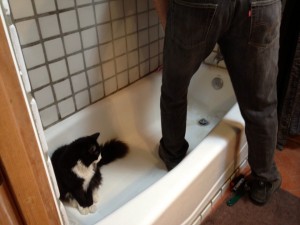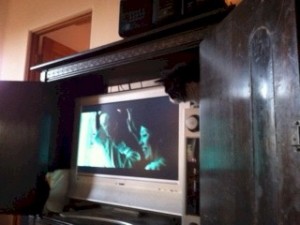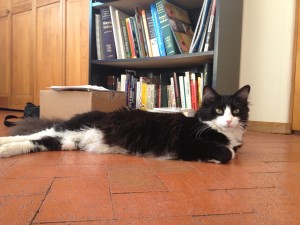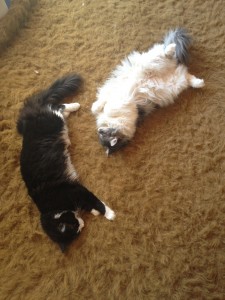 I recently changed my laptop background to this pic I took in Virgin Gorda. I might have to take it down again, because it’s making me all kinds of wistful.
I recently changed my laptop background to this pic I took in Virgin Gorda. I might have to take it down again, because it’s making me all kinds of wistful.
The other night, I had a few neighbor gals over for wine and snacks. I know for a lot of you out there, this is a no-brainer thing, right? Some of you have guests over all the time, willy-nilly, tra-la tra-lay. Yeah, I know about you people. I used to be like you.
These days, though, having people over means cleaning the house, which I no longer pay someone ELSE to do. Those were happy days. It means acquiring snacky food that I no longer keep around the house and also cleaning MYSELF up. Yes – I confess that, working from home and not seeing anyone but David or people at the gym, I am not company-ready a great deal of the time.
So, when the day came, by lunchtime I bitterly regretted that I’d invited these people to my house. I may have even contemplated calling them and saying I was sick. If I’d had a job outside the house, I would have gotten everything done the night before, then whizzed home from work, in my cute work outfit with my hair and make-up already done, thrown some snacks onto platters and been done.
But no.
Instead I had to halt the day job and go to the store, vacuum and, gasp, shower and assemble myself. I griped to David that probably no one would come and then all that effort would be WASTED. He says, well, we can always have a party together.
I tactfully did not point out that he’s blown his gig by loving me without make-up and a cute outfit.
Still and all, people came and I had fun. It was totally worth it and now I feel all bubbly and optimistic that I could muster to do this Much More Often. An ambition I’ll likely come to regret in the future when I have guests LOOMING again.
For now, however, I’ve paid several people back for previous hospitality and created hostess-debt in a few others. So they get to muster the effort now and have us over, which is always preferable. I’m always happy to drink someone else’s wine and have at their snacks. Totally worth make-up for that. (Maybe someone should tip-off David.)
In fact, David and I once went to a party we were accidentally invited to.
No, really. I got this email invitation to “Jennifer,” which is a sure sign that the person doesn’t actually know me. With the possible exception of IRS agents and they, notably, never invite me to parties. Especially not Halloween costume parties where we’re encouraged to come as our alter-egos. Fun, right?
But I totally didn’t know the people who invited us. Neither did David. I asked around and none of my friends knew them either. Finally I found one couple that we occasionally socialized with – neighbors a few blocks away, he was a nonfiction writer I’d been on panels with and she and I had intersected in various social groups – who had also been invited. They agreed that the people having the party couldn’t possibly know us.
I suspect it was the “Jennifer” syndrome. See there are so damn many of us that the email autofill function is like a curse for anyone who knows more than one Jennifer. Which is everybody, right? It’s like that movie “Jennifer 5” or some such from the 80s where she discovers she’s a clone. It’s annoying, but there’s also a certain solidarity in our Jenniferness.
So, yes – we totally went to the party.
And I asked the host and hostess if they meant to invite us. This may have been complicated by the fact that I was wearing thick faerie queen makeup and David was dressed up as an early-days Jim Morrison. We finally established that, no, we didn’t know each other.
They let us stay, however, and the party really did rock. Like I always suspect the parties I’m not invited to do.
I reciprocated, too – by inviting them to our annual Christmas party. I even wrote on the invitation that we were the people they didn’t know, who’d crashed their Halloween party.
They didn’t come. Can you believe it?
Totally worth the make-up though.







